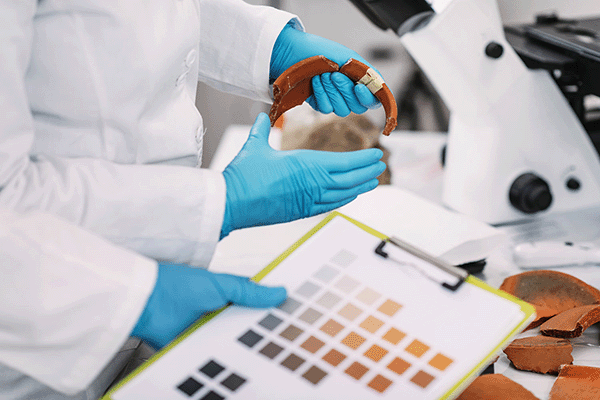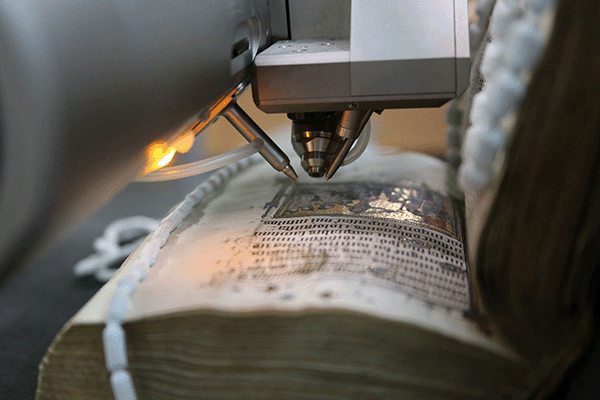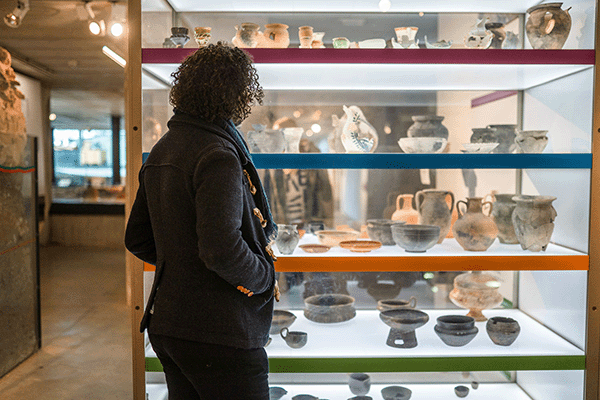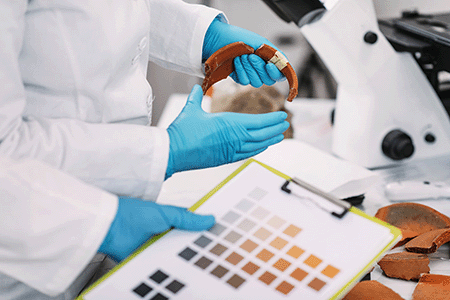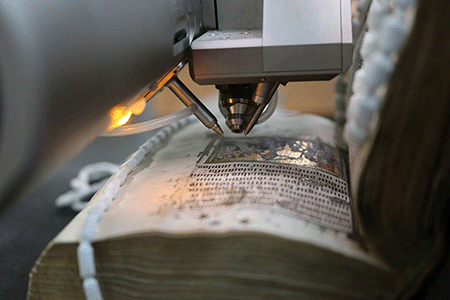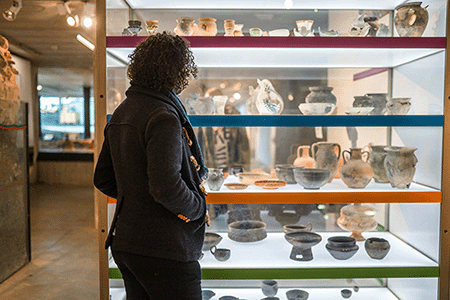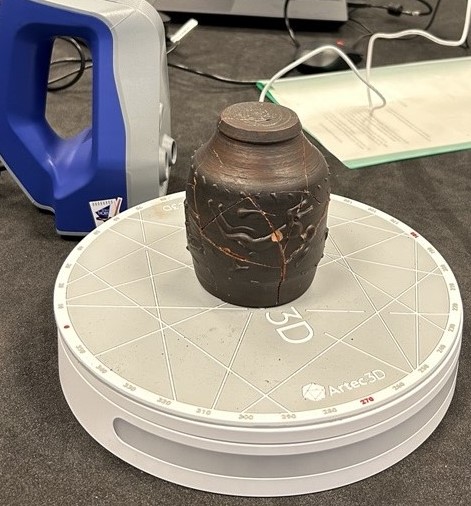In January, the RICHeS team visited the University of Nottingham and met with Dr Holly Miller, Project Lead of a Tranche 1 host facilities RICHeS’ funded project. In this project, RICHeS is supporting the establishment of the Nottingham Heritage Science Gateway (NHSG) which will offer comprehensive sample preparation and analysis. This project builds on the investment of £680,000 from the Arts and Humanities Research Council Creative Research and Capabilities (CReSCa) grant and institutional investment into heritage science at the university since 2022.
Exploring and enhancing laboratories
The RICHeS team explored the specialist CReSCa-funded laboratories, where students and researchers have access to advanced technologies such as 3D scanning, X-ray facilities and near-infrared (NIR) spectrometry. NIR spectrometry is a non-destructive technique that analyses the composition of samples by measuring how light is absorbed and reflected.
At the University of Nottingham, researchers are using this method to assess collagen preservation in archaeological bones. This is a crucial step in archaeological analysis as well-preserved collagen is essential for further scientific testing. If a sample has a sufficient level of collagen, it can be considered for further analyses including radiocarbon dating, ancient DNA (aDNA) extraction and paleodiet reconstruction. Since these analyses are inherently destructive, permanently altering the original sample, it is vital to select only samples that are most likely to yield meaningful results. By using the NIR spectrometry as a preliminary screening method, researchers can improve efficiency and minimise unnecessary sample loss and maximise the success rate of their investigations.
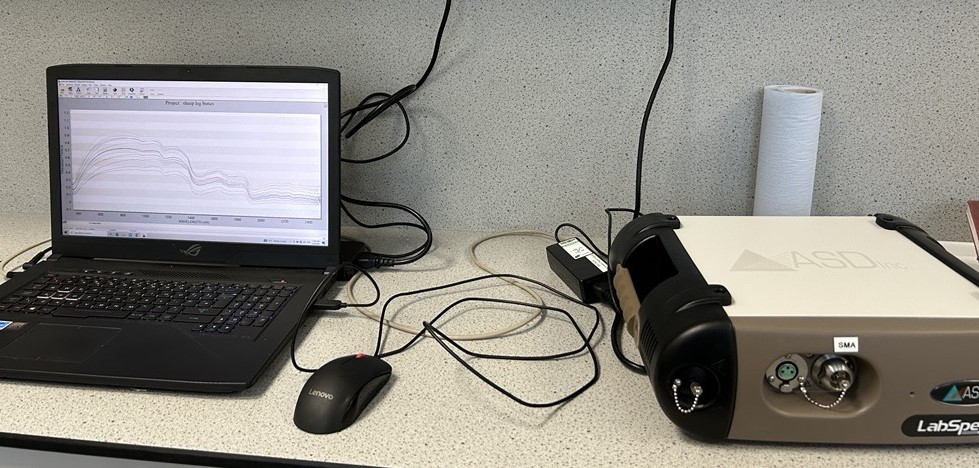
NIR spectrometry at the University of Nottingham
The NHSG is set to expand research capabilities with new equipment, increased staff capacity and a state-of-the-art clean room. With designs well under way, this new space facility will feature a Category 2 laboratory, designed for handling medium-risk biological hazards, strategically integrated into a re-purposed section of the building.
Sustainability is a key consideration of this project. The University of Nottingham is ranked among the world’s most sustainable higher education institutions and is committed to environmentally responsible research. As part of this commitment, the NHSG project aligns with the Laboratory Efficiency Assessment Framework (LEAF) to ensure sustainable practices are embedded in every stage of development.
The importance of collaboration
RICHeS is dedicated to fostering collaboration and advancing research in heritage and conservation science. At the University of Nottingham, this commitment is reflected in the Nottingham Materials and Environment Science and Heritage Laboratories (N-MESH), a dynamic and interdisciplinary network of researchers. N-MESH specialises in biological and environmental archaeology and material and technological analyses, bringing together expertise from all five faculties. N-MESH actively collaborates with the University’s Museum of Archaeology and Manuscripts and Special Collections, alongside a growing community of external partners.
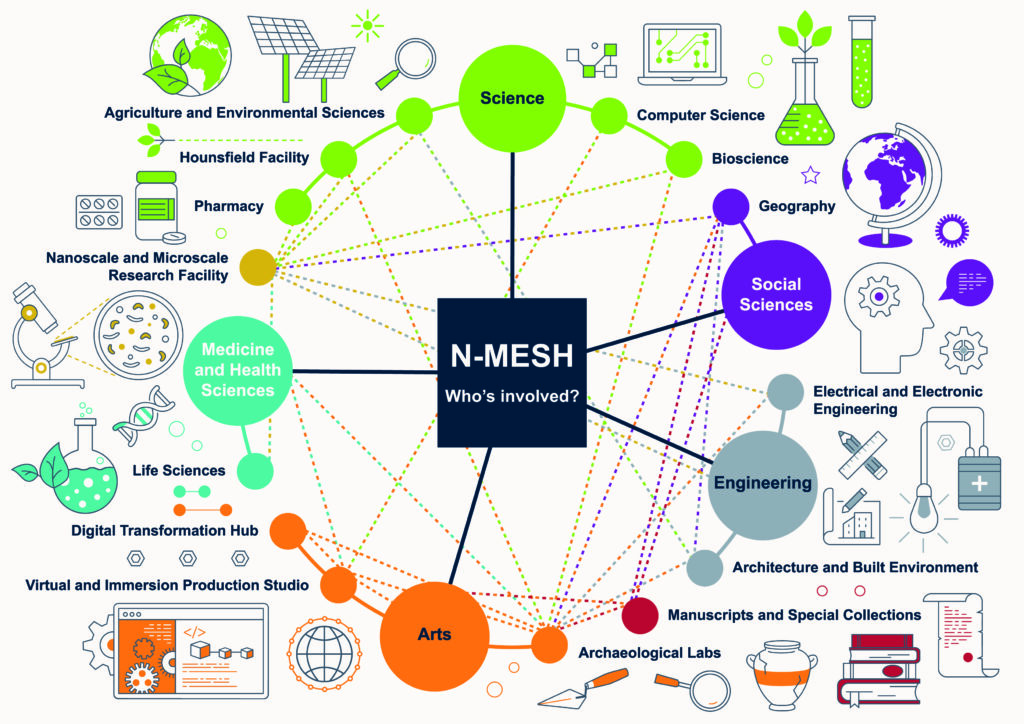
Diagram of the current N-MESH network across the University of Nottingham
Beyond the university, the NHSG team have built strong relationships with businesses and local museums across the East Midlands. Their work with Nottingham City Museums and Galleries includes research into the origins of ‘George’ the Gorilla, while a new project with Derby Museums is focused on analysing works on paper by Joseph Wright. Additionally, the NHSG team collaborates closely with the British Geological Survey (BGS) through the joint Centre for Environmental Geochemistry. This partnership enables access to specialist techniques such as mass spectrometry and geochemistry analysis, supports joint PhD training programmes and facilitates the development of collaborative grants.
NHSG demonstrates the importance of ensuring that heritage science equipment, expertise and resources are accessible to the wider heritage science and conservation community. This visit highlighted the crucial role RICHeS plays in advancing the heritage science sector across the UK by enhancing capacity and capabilities.
Dr Holly Miller shares…
“We were delighted to welcome the RICHeS Team to the University of Nottingham and show them how recent and ongoing investments in heritage science at the University has transformed our interdisciplinary community through the establishment of N-MESH. We are greatly looking forward to working with the RICHeS Team to deliver the Nottingham Heritage Science Gateway, making our combined heritage science capabilities and capacities accessible to as wide a range of users as possible”

